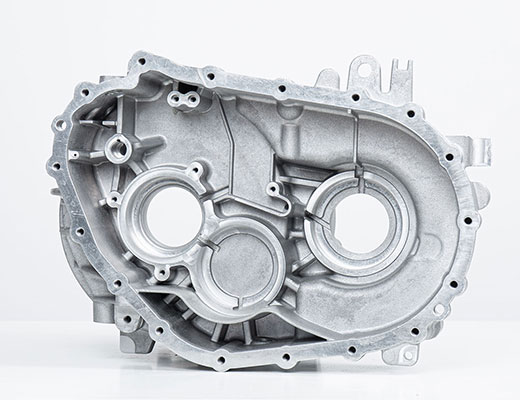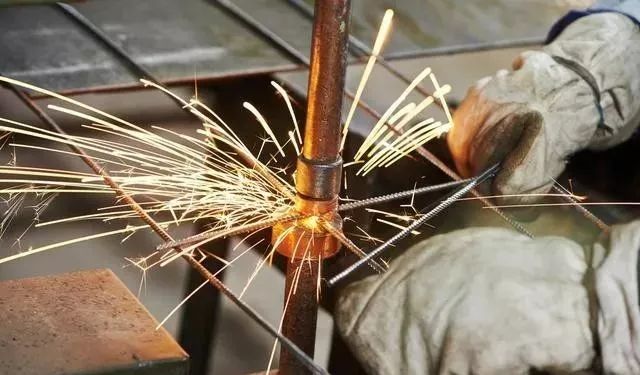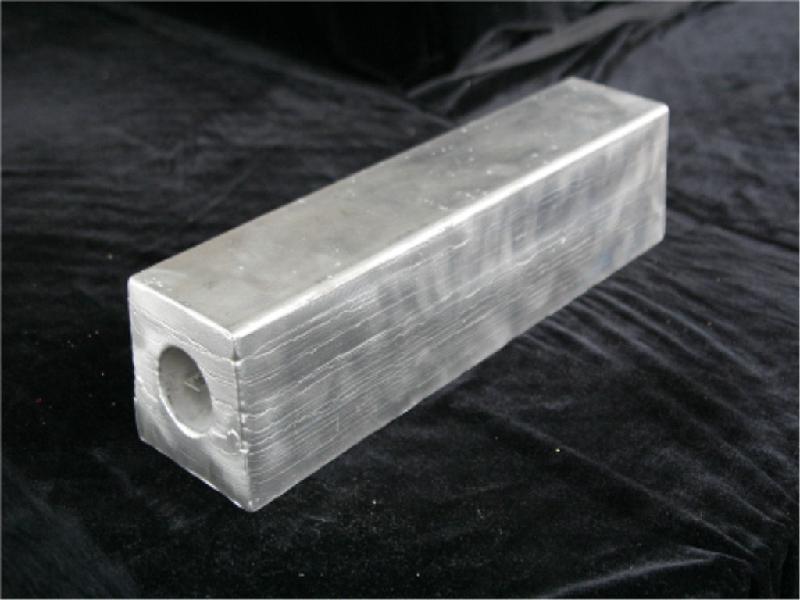Magnesium is a lightweight, durable, and highly versatile metal that has a wide range of applications in various manufacturing industries. This metal is the eighth most abundant element in the Earth's crust and has excellent corrosion resistance, making it an ideal choice for many industrial applications. In this blog, we will explore some of the most common uses of magnesium in manufacturing.
Magnesium is widely used in die casting applications due to its low density, high strength, and excellent dimensional stability. Magnesium die casting is used to manufacture parts for the automotive, aerospace, and electronics industries, among others. Some of the parts that can be die-cast from magnesium include engine blocks, transmission cases, steering wheels, and laptop and mobile phone frames.
As a magnesium aluminum alloy die casting supplier, let us introduce to you some of the benefits of die-casting magnesium include:
1. Lightweight: Magnesium is one of the lightest metals available, with a density that is two-thirds that of aluminum and one-quarter that of steel. This makes it an excellent choice for applications where weight is a critical factor, such as in the automotive and aerospace industries.
2. High Strength-to-Weight Ratio:
Magnesium alloys have a high strength-to-weight ratio, making them stronger and more durable than many other materials. This is particularly important in applications where the part must withstand high stress and loads.
3. Good Corrosion Resistance:
Magnesium metal alloys have excellent corrosion resistance, which makes them ideal for use in harsh environments. They are particularly resistant to saltwater and other corrosive substances, making them useful in marine applications. And we provide magnesium alloy for sale.
The combination of low weight, high strength, good corrosion resistance, good thermal conductivity, and excellent machinability makes magnesium an ideal choice for die-casting applications.

Magnesium is also used in welding applications due to its low melting point and excellent heat conductivity. Magnesium welding is used to manufacture components such as aircraft and aerospace parts, bicycle frames, and automotive parts.
Magnesium is a reactive metal that is prone to oxidation, which can create problems when welding. Here are some of the key factors to consider when welding magnesium:
1. Cleanliness: Magnesium must be cleaned thoroughly before welding to remove any oils, grease, or other contaminants that can interfere with the welding process.
2. Shielding Gas: Welding magnesium requires the use of a shielding gas, such as argon or helium, to protect the molten metal from the surrounding air and prevent oxidation.
3. Welding Technique: Magnesium is best welded using the gas tungsten arc welding (GTAW) process, also known as TIG welding. This process allows for precise control of the heat input and minimizes the risk of oxidation.
4. Preheat: Magnesium material should be preheated before welding to reduce the risk of cracking and ensure a strong weld.
5. Filler Metal: Magnesium filler metal should be used when welding magnesium to ensure a strong, durable weld. The filler metal should match the composition of the base metal as closely as possible.
Welding magnesium requires careful preparation and execution to ensure a strong, durable weld. It is important to follow best practices and work with a skilled welder who has experience working with magnesium. Also, we offer a reasonable magnesium alloy scrap price, if you have interest.

Magnesium extrusion is used to manufacture a wide range of components for various industries, including automotive, aerospace, and construction. Extruded magnesium components include window frames, door frames, heat sinks, and decorative elements.
Magnesium and magnesium alloys are easy to machine and extrude, which makes them an excellent choice for complex shapes and designs. And magnesium has good thermal conductivity, which means that it can quickly dissipate heat. This makes it useful in applications where heat dissipation is important, such as in electronic devices and automotive parts.
Overall, the combination of low weight, high strength, good corrosion resistance, excellent machinability, and good thermal conductivity makes magnesium an ideal choice for extrusion applications. It is important to note, however, that magnesium is a reactive metal and must be handled carefully to prevent oxidation during the extrusion process. Special precautions must be taken to ensure that the metal is properly protected from the surrounding atmosphere during extrusion.

Magnesium sheet metal is used in the manufacture of various components for the aerospace and automotive industries. Magnesium sheet metal is lightweight, strong, and easy to work with, making it an ideal material for producing complex shapes and designs.
Magnesium metal for sale at Yirui Metal can be used for sheet metal fabrication, but there are some important considerations that need to be taken into account. Sheet metal fabrication involves forming, cutting, and joining thin sheets of metal to create a desired shape or structure. Here are some of the key factors to consider when using magnesium for sheet metal fabrication:
1. Cutting and Forming:
Magnesium metal can be cut and formed using many of the same tools and techniques used for other metals. However, it is important to use tools that are designed for use with magnesium to prevent damage to the metal and to ensure a clean, accurate cut.
2. Welding and Joining:
Magnesium material can be welded using a variety of techniques, including gas tungsten arc welding (GTAW), gas metal arc welding (GMAW), and laser welding. However, it is important to take special precautions to prevent oxidation during the welding process, as magnesium is highly reactive.
3. Surface Treatment:
Magnesium materialcan be treated with a variety of surface coatings, such as anodizing or plating, to improve its corrosion resistance or to enhance its appearance.
Magnesium material can be a good choice for sheet metal fabrication when its unique properties are needed. However, it is important to work with a skilled fabricator who has experience working with magnesium and who understands the special precautions that must be taken to prevent oxidation during the fabrication process.
Magnesium metal is also used in machining applications to produce a wide range of components for various industries, including automotive, aerospace, and electronics. Magnesium can be machined to produce complex shapes and designs, making it an ideal material for producing intricate components such as gears, bearings, and connectors.
Magnesium metal is often used for machining because it is a lightweight and easy-to-machine metal with good mechanical properties. Machining involves using cutting tools to remove material from a workpiece to create a desired shape or finish. Here are some of the key factors to consider when machining magnesium:
1. Cutting Tools:
Magnesium material is a soft metal, so it requires cutting tools that are designed for use with soft metals. Carbide tools are a popular choice for machining magnesium, as they are durable and can be used at high speeds.
2. Lubrication:
Magnesium material can be prone to galling, which is a form of surface damage that can occur during machining. To prevent galling, it is important to use a suitable lubricant during the machining process.
3. Safety:
Magnesium material is a flammable metal and can ignite when exposed to heat or sparks. It is important to take proper safety precautions when machining magnesium, such as using fire-resistant barriers and ensuring proper ventilation.
4. Surface Finish:
Magnesium material can be machined to a high degree of accuracy and can achieve a smooth surface finish. However, care must be taken to avoid creating burrs or other defects during the machining process.
Magnesium is a good choice for machining when its unique properties are needed. However, it is important to work with a skilled machinist who has experience working with magnesium and who understands the safety considerations that must be taken when machining this metal.
Magnesium is also used in powder metallurgy applications to manufacture a wide range of components for various industries, including aerospace and automotive. Magnesium powder metallurgy is used to produce components such as engine parts, gears, and bearings.
Magnesium metal can be used for powder metallurgy, a manufacturing process that involves forming metal powders into a desired shape or structure using heat and pressure. Here are some of the key factors to consider when using magnesium for powder metallurgy:
1. Powder Production:
Magnesium powders can be produced using a variety of techniques, including atomization, chemical reduction, and mechanical milling. The choice of production technique depends on the desired powder characteristics, such as particle size, shape, and purity.
2. Forming:
Magnesium alloy powder can be formed into a desired shape or structure using various techniques, such as hot pressing, cold pressing, or injection molding. Care must be taken to ensure that the powder is properly consolidated and that the final part has the desired properties.
3. Sintering:
After forming, the magnesium part is typically sintered at high temperatures to create a fully dense, solid structure. During the sintering process, the powder particles are bonded together to create a solid mass.
4. Surface Treatment:
Magnesium parts produced using powder metallurgy can be treated with a variety of surface coatings, such as anodizing or plating, to improve their corrosion resistance or to enhance their appearance.
Magnesium is a good choice for powder metallurgy when its unique properties are needed. However, it is important to work with a skilled metallurgist who has experience working with magnesium and who understands the special considerations that must be taken when working with this metal powder.
In conclusion, magnesium is a highly versatile metal that finds a wide range of applications in various manufacturing industries. Its low density, high strength, and excellent corrosion resistance make it an ideal choice for die casting, welding, extrusion, sheet metal fabrication, machining, and powder metallurgy applications. As technology continues to advance, the use of magnesium is likely to expand further, making it an increasingly valuable material in the years to come.